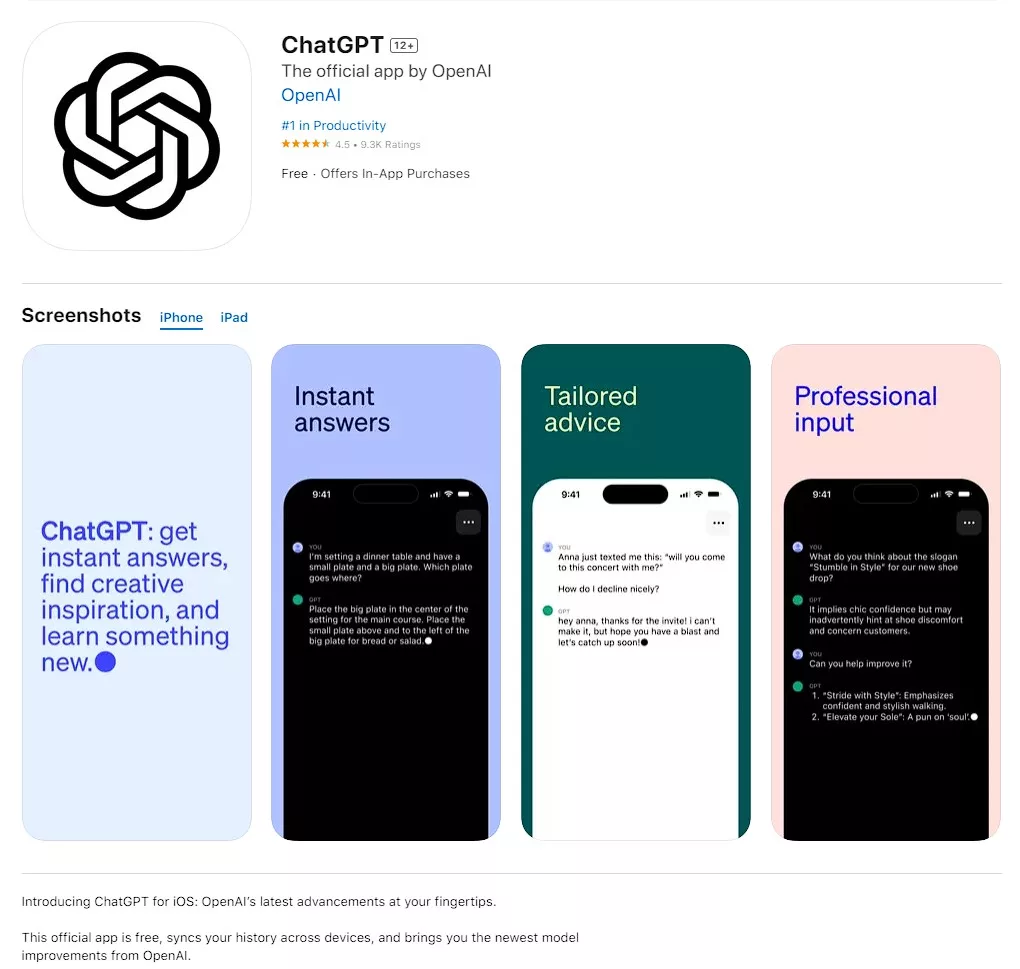OpenAI’s official ChatGPT iOS app works with voice, syncs chat history, and serves no ads.
OpenAI launched an official ChatGPT iOS app on May 18. It’s a free app that supports voice inputs. Currently limited to US users, it can do everything that the web version can do such as answer questions or do research on your behalf. It challenges Siri and the Google search engine in one go, though these are not technically the competitors to ChatGPT on an iOS device. The app has been updated 4 times since improving a host of features such as iPad compatibility, battery efficiency, and RTL support.
This app will use your typical ChatGPT account login. If you don’t have ChatGPT Plus then the capabilities will be limited to the Free Preview version. Your chat history will be synced.
An Android app and roll out to more countries is scheduled.
The main purpose of the app could be to replace searching for answers. It will not directly impact Siri as ChatGPT is an app that cannot control other tasks like replying to emails, making a note, or setting an alarm. However, the original intention was to save users from ChatGPT duplicates—Apps that misuse the ChatGPT brand name to confuse users while using the actual ChatGPT API to answer questions. These apps serve ads and make money as middlemen. That will hopefully change with the official ChatGPT app that has no ads just like the web version.
You can install it from the App Store now. It’s already the #1 app in Productivity, closely followed by numerous apps from Google and Microsoft. The apps “Chat with Ask AI” and “ChatBox – AI Chatbot Assistant” have been pushed further down since the release of the official ChatGPT iOS app.
The surge in AI has affected mobile users equally. They want to use AI on their devices. And what better way to capture that than by providing a native experience instead of an optimized web version?
It also supports OpenAI’s open-source voice recognition system called Whisper. On phones, generative AI is already present in Microsoft products such as Bing and Skype, and Snapchat.

